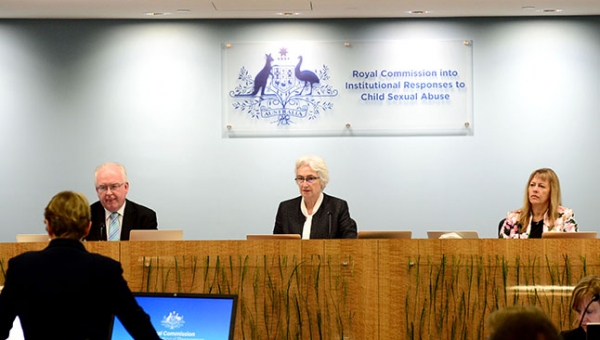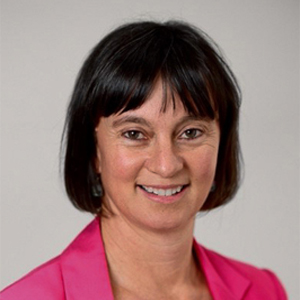Royal Commission Response Update: 2018 Reports from Australian Jurisdictions and Major Religious Institutions (Part Three: Religious Institutions)

Following on from past two weeks’ School Governance articles which summarised the key components of the 2018 Annual Progress Reports of the Commonwealth Government, some states and the Australian Capital Territory on their implementation of recommendations of the Royal Commission into Institutional Responses to Child Sexual Abuse (Royal Commission), this week we summarise the key components of the 2018 progress reports from three religious institutions.
Catholic Church
Child Safe Standards
The Australian Catholic Bishops Conference (ACBC) and Catholic Religious Australia (CRA) established Catholic Professional Standards Ltd (CPSL) in late 2016 as an independent company limited by guarantee to develop, audit and report on compliance with professional standards to protect children and vulnerable people. CPSL has five main functions:
- develop and publish the National Catholic Safeguarding Standards (NCSS)
- audit the compliance of Catholic Church entities against the NCSS
- publicly report audit findings by publishing audit reports
- provide training, support, tools and resources to assist with implementation of the NCSS
- provide advice on policy and other matters to Church Authorities.
Draft 1 of the NCSS was released for public comment and consultation at the end of April 2018. Draft 1 of the NCSS included the 10 Child Safe Standards of the Royal Commission (Volume 6), as well as incorporating a range of other recommendations made by the Royal Commission to religious institutions generally and the Catholic Church specifically.
Feedback was sought and received over 2018, and the draft has since been revised. Although it was expected, at the time of writing of the Catholic Church’s Annual 2018 Progress Report, that the revised NCSS would be released in late 2018, this did not occur.
Author’s note: The revised NCSS were released in February 2019.
Redress
In mid-2018, the ACBC agreed in principle to join the National Redress Scheme. In conjunction with CRA, it made a public announcement to that effect later that month. The Catholic Church was the first institution to declare, at the national level, that its institutions would enter into the National Redress Scheme.
Australian Catholic Redress Limited has been established by the ACBC to streamline the Church’s engagement with the National Redress Scheme, making the processing of applications more efficient and effective. All dioceses have committed to joining Australian Catholic Redress Limited.
Although it was hoped that all dioceses, archdioceses and eparchies would enter into the National Redress Scheme at the same time, this has not been possible because enabling legislation had not passed and/or been enacted in all states. Dioceses in participating states will now join as they are able. Most dioceses have completed their preparatory documents and Australian Catholic Redress Limited is working closely with the Department of Social Services to facilitate the dioceses’ formal entry into the National Redress Scheme, which the Minister for Family and Social Services will announce.
Religious institutes are separate entities within the Catholic Church with diverse structures and ministries. Some commenced the process to enter the National Redress Scheme as soon as the processes were outlined in July 2018. Others have had to work out how to set up a structure to include their various ministries to join as one participatory group for their congregation and ministries. Although it was expected that Catholic Church religious institutes would start being formally declared as participating in the Scheme by the end of 2018, none have yet done so.
Author’s note: Therefore, further developments in this area are expected in 2019.
Anglican Church
Child Safe Standards
The Anglican Church has been working with the National Council of Churches Australia as part of a task group to review the current Safe Church Training Agreement framework and standards to reflect the 10 National Principles for Child Safe Organisations.
Note that the governance structure of the Anglican Church (decentralised and autonomous) means that each diocese has responsibility for the development, adoption and implementation of child protection policies and procedures within their jurisdiction. Each autonomous school, agency and organisation has a similar responsibility.
Since the late 1990s the General Synod has initiated the development and promotion of national models, standards and benchmarks in the area of child protection, abuse complaints management and responding to survivors of abuse. The lead entity with this responsibility is the General Synod’s Safe Ministry Commission (SMC).
The SMC is establishing an Anglican working group including representatives from Anglicare Australia and the Anglican Schools Association to consider, over 2019, the implementation of the National Child Safe Principles for all Anglican entities.
In September 2017, the General Synod passed the Safe Ministry to Children Canon 2017 (2017 Canon) which provides national standards in areas of church worker screening, selection and training, the adoption of a consistent code of conduct and risk management strategies for persons of concern. The 2017 Canon includes provisions for an external audit of performance against the national standards. At December 2018, 18 of 23 dioceses had adopted the 2017 Canon with the remaining dioceses to consider adoption in 2019.
Anglicare Australia, the peak body for Anglican community service agencies, and Anglican Schools Australia are monitoring the development and introduction of new regulatory and reporting arrangements by relevant state and territory oversight bodies on behalf of their members. Anglicare Australia and Anglican Schools Australia will engage with relevant state and territory oversight bodies upon the Council of Australian Governments’ (COAG) adoption of the 10 National Principles for Child Safe Organisations in early 2019.
Over 2019, there will be an ongoing review of national standards provided in the 2017 Canon, and an independent audit requirement against these standards came into effect on 1 January 2019.
Record Keeping and Information Sharing
In 2007, the General Synod passed the National Register Canon 2007 (2007 Canon) which provided for the establishment of the National Register and four protocols for its implementation. The 2007 Canon provides for a national, transparent and accountable process to ensure appropriate checks are made before all ordinations, licences or appointments are made. The Directors of Professional Standards in all dioceses are required to enter relevant information into the National Register. Currently, however, this information does not extend to persons working in affiliated institutions in all dioceses. The National Register contains only information primarily pertaining to complaints or findings of child abuse and adult sexual misconduct as well as adverse findings against or adverse admissions made by clergy or lay people within the Anglican Church.
The Standing Committee at its meeting held on 11 to 12 May 2018 passed a resolution requesting the SMC to consult with Anglicare Australia and Anglican Schools Australia and prepare:
- a policy in relation to whether the scope of the 2007 Canon should be extended to cover officers, employees and volunteers of all Anglican Church of Australia institutions and if appropriate
- any amendments of the 2007 Canon proposed to give effect to this policy.
Redress
Not addressed in the Anglican Church’s 2018 Annual Progress Report. However, according to the National Redress Scheme Website, Anglican Church institutions are joining the National Redress Scheme in stages due to its decentralised governance structure and the large number of Anglican Church institutions such as dioceses and autonomous schools, agencies and organisations.
Uniting Church
Child Safe Standards
The Uniting Church’s National Child Safe Policy Framework (Framework) was reviewed in light of the Royal Commission’s Child Safe Standards, and the Framework includes the Child Safe Standards. The Uniting Church is anticipating sign off of these elements as standards across Australian jurisdictions over 2019. Many jurisdictions have already begun to include reporting against the Child Safe Standards as part of reporting and acquittal processes and anticipate greater levels of engagement with governments going forward.
The Uniting Church has established an implementation plan for the Framework, with resources to aid implementation. The Framework applies to Uniting Church Schools.
Record Keeping and Information Sharing
In relation to historical documents, a number of Synods, schools and agencies have dedicated resources to undertake projects to locate, sort and catalogue their document holdings.
Over 2018, the Uniting Church has undertaken the following work:
- the development/review of records management policies and procedures to support the implementation of the Royal Commission’s recommendations
- amendments to formal records retention and disposal programs for compliance with the recommendations
- improved centralisation of records and reporting to improve the value and accessibility of information held.
Over 2019, the following work will be undertaken:
- ongoing review of policy, procedure and practice for retaining and disposing of records
- improvements to the coordination of record keeping to help identify trends/patterns of behaviour that could be indicative of poor practice or a high risk of abuse or grooming, and to keep documents in a systematic, ordered way that will be searchable into the future
- improvements to case note taking for staff in roles that directly care for children
- improvements to the documentation of the life of children in out-of-home care so that they have a reference and memories of their time in care and access to important information about their lives.
Redress
At the time of writing its 2018 Annual Progress Report, the Uniting Church was working to complete all requirements for operational participation under the National Redress Scheme. It announced that it would opt in to the National Redress Scheme in June 2018. To join the National Redress Scheme, the Uniting Church has created a single national legal entity to streamline the process of engaging with redress applications across the six Synods that make up the Uniting Church.
Due to the legal structure of the Uniting Church, there are complex legal and governance arrangements involved - the referral of powers between different entities, establishing internal and external systems to aid in the processing of requests for information from the National Redress Scheme and ensuring that the Church is ready to support survivors in any engagement that they wish to have with the Church.
The Uniting Church anticipated having all requirements met and information provided to the National Redress Scheme by the end of 2018.
Author’s note: Therefore, further developments are expected in this area in 2019.
Click here to read Part One of this series.
Click here to read Part Two of this series.
About the Author

Deborah De Fina
Resources you may like
Article
Managing psychosocial hazards in schools: a legal and practical guide for school leaders
School leaders are becoming increasingly aware that workplace safety isn’t just about physical...
Read MoreArticle
Cyber security and AI in schools: emerging risks and governance imperatives
In an era where artificial intelligence (AI) tools are becoming as commonplace as calculators once...
Read MoreArticle
Under 16 social media 'ban’: an explainer for schools
The Australian Government passed a new law called the Online Safety Amendment (Social Media Minimum...
Read More
